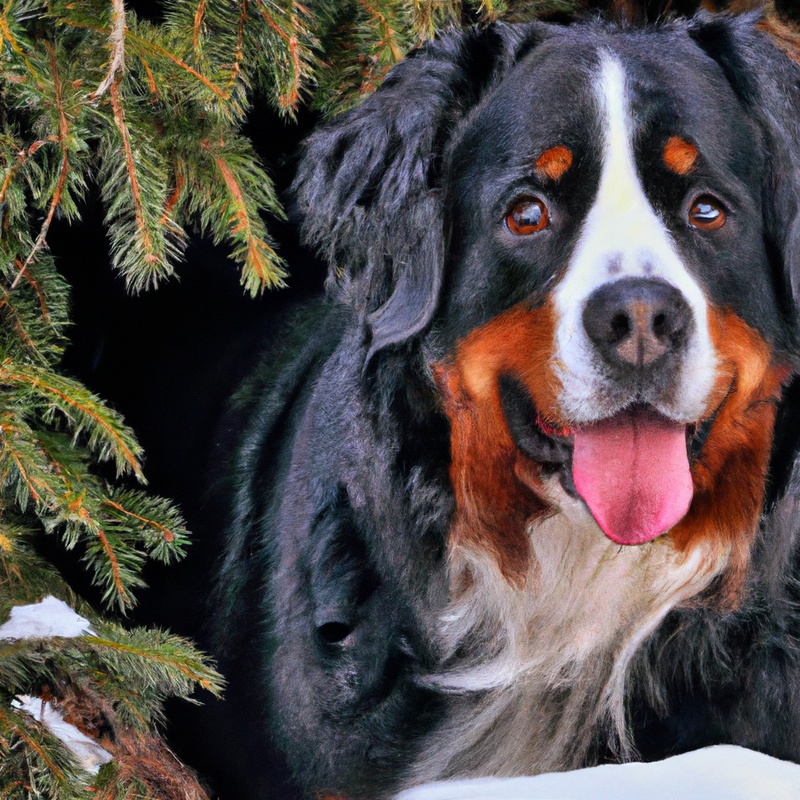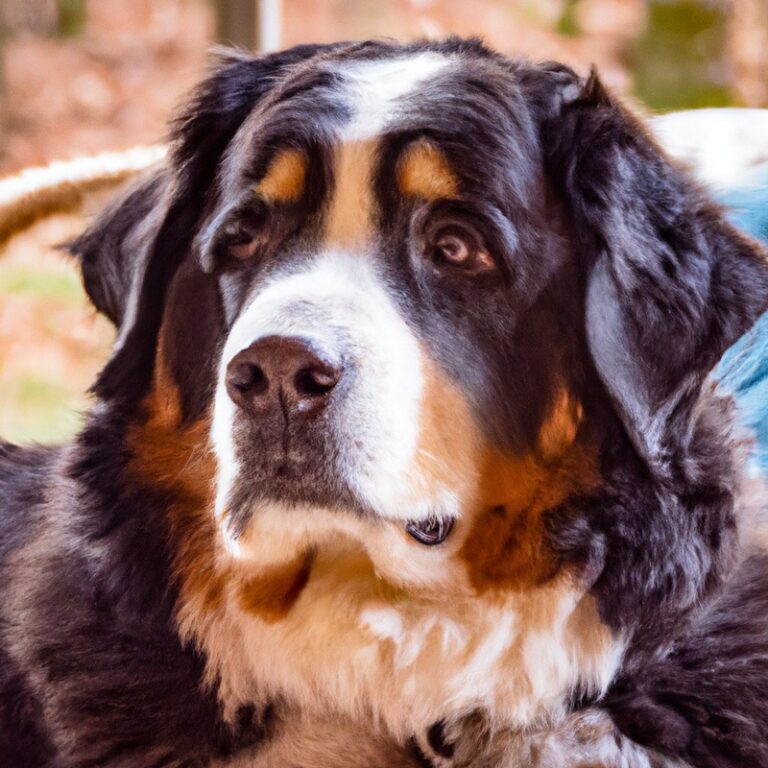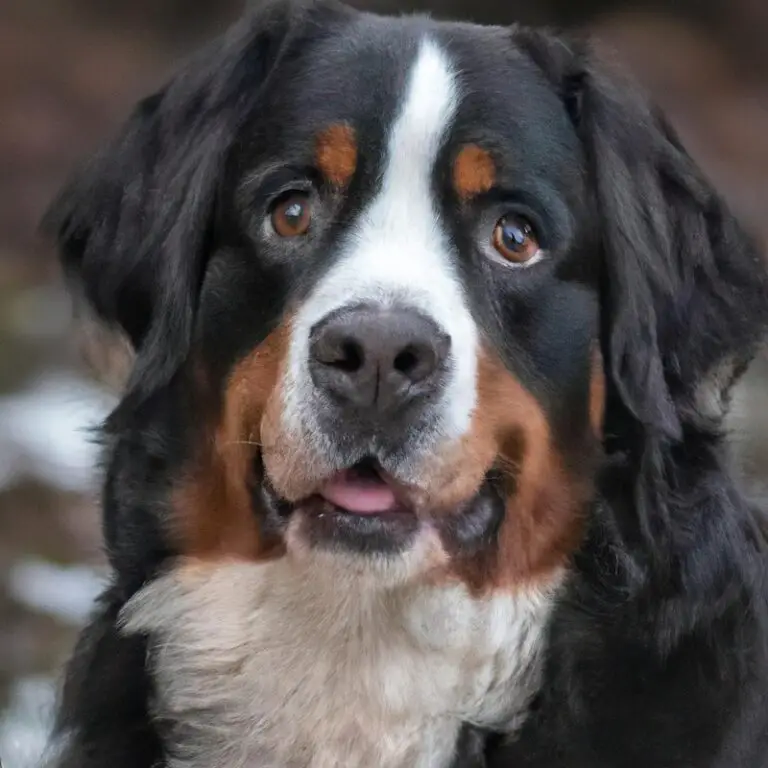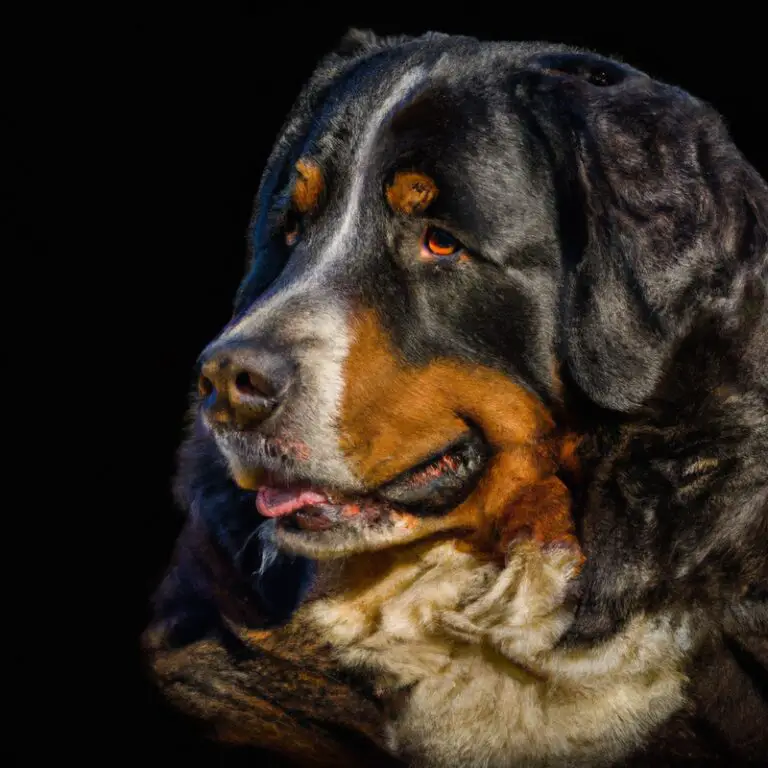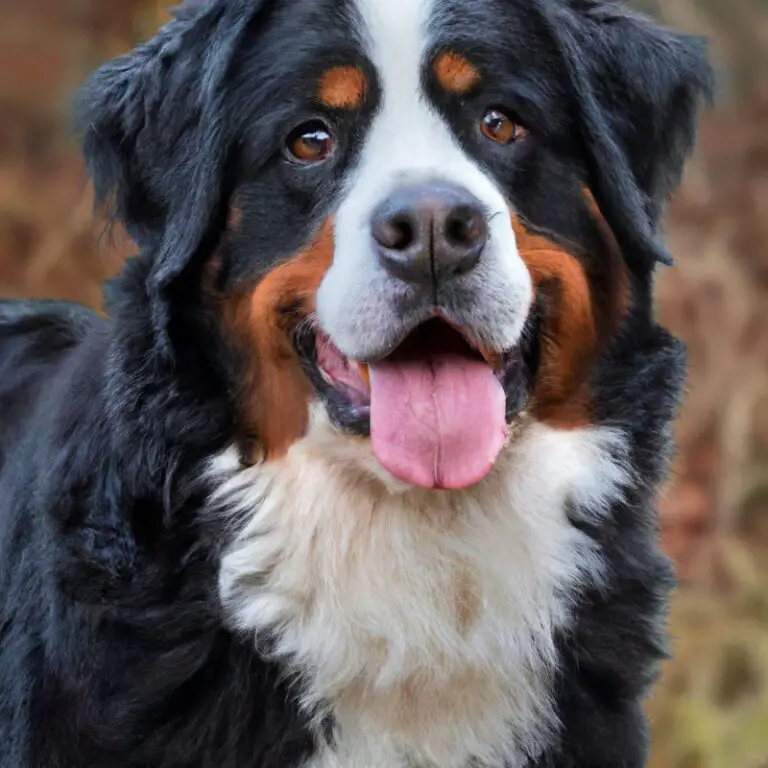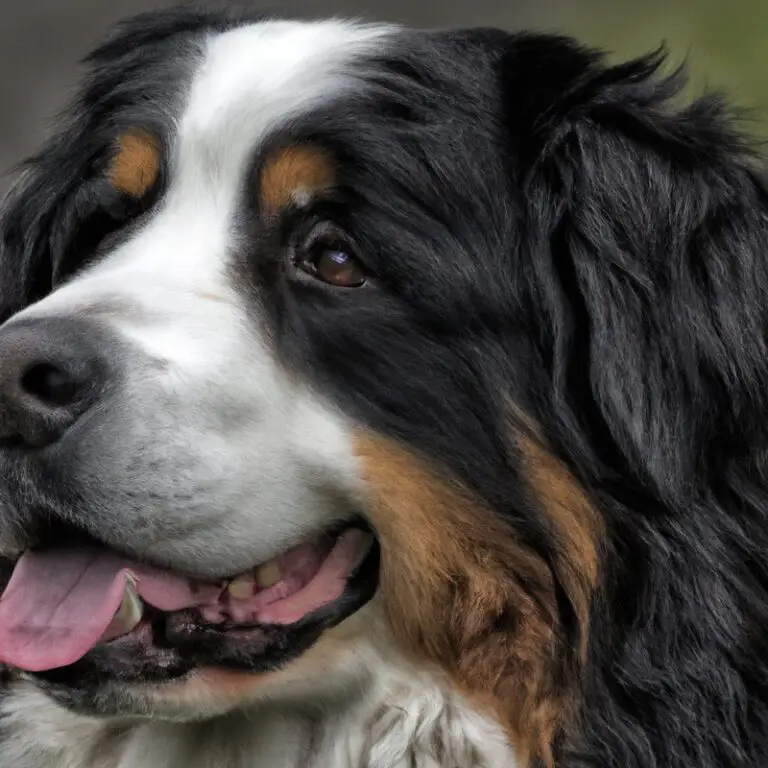What Are The Characteristics Of Bernese Mountain Dogs?
Key Takeaways:
- Bernese Mountain Dogs are a large and sturdy breed known for their gentle and lovable nature.
- They have a thick, tri-colored coat that requires regular grooming to keep it in good condition.
- These dogs excel in their role as family pets and are highly trainable and eager to please.
- Unfortunately, they have a relatively short lifespan compared to other breeds, typically around 7-10 years.
Are you looking for a furry companion that is both gentle and loyal? Look no further than the Bernese Mountain Dog! This breed’s striking appearance and affectionate nature make them a beloved choice for many dog lovers.
From their sturdy build to their gorgeous coat, these dogs are a sight to behold.
But it doesn’t stop there – Bernese Mountain Dogs are also known for their intelligence and trainability. In this blog, I will delve into the characteristics of Bernese Mountain Dogs, covering everything from their temperament to their exercise needs.
So let’s jump in and explore the wonderful world of Bernese Mountain Dogs together!
| Characteristics | Description |
| Size | Large, strong, and sturdy |
| Coat | Thick, double coat that is moderately long |
| Color | Black with distinctive rust and white markings |
| Temperament | Gentle, friendly, and affectionate |
| Intelligence | Highly intelligent and easy to train |
| Activity Level | Moderately active and enjoy daily exercise |
| Health | May be prone to some genetic health issues |
Appearance
Size and weight
Size and weight are important characteristics to consider when it comes to Bernese Mountain Dogs. These dogs are known for their large size, with males typically standing between 24 to 28 inches tall at the shoulder, and females slightly smaller.
In terms of weight, adult Bernese Mountain Dogs can range from 70 to 115 pounds.
It’s worth noting that individual dogs may vary slightly in size and weight, but overall, you can expect Bernese Mountain Dogs to be big and sturdy companions.
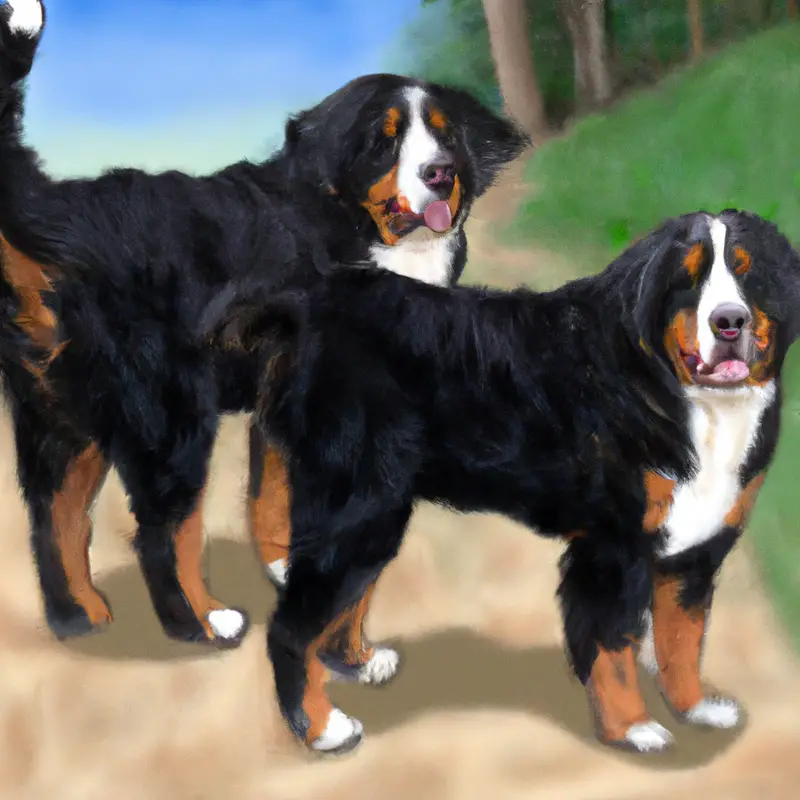
Coat and color
Coat and color are key characteristics of Bernese Mountain Dogs. They have a thick and double coat which helps to protect them from cold weather.
The outer coat is wavy or straight, while the undercoat is dense and insulating.
Their coat is usually black with rust and white markings. The markings are typically found on their chest, legs, and face.
The combination of black, rust, and white creates a striking and beautiful coloration that is unique to this breed.
Temperament
Gentle and friendly nature
Gentle and friendly nature is one of the defining characteristics of Bernese Mountain Dogs. These dogs have a natural inclination towards being gentle and friendly towards people and other animals.
They are known for their warm and loving disposition, making them excellent companions for families and individuals alike.
Bernese Mountain Dogs are typically very patient and tolerant, which makes them great with children and other pets. They have a calm and easygoing demeanor, and their friendly nature extends not only to their loved ones but also to strangers.
Their affectionate and sociable personality makes them a pleasure to be around.
Loyal and protective
Loyal and Protective: Bernese Mountain Dogs are known for their unwavering loyalty and strong protective instincts. They are devoted to their families and will go to great lengths to keep them safe.
These dogs form deep bonds with their owners and will always be by their side, offering companionship and support.
With their size and strength, Bernese Mountain Dogs also make excellent watchdogs, watching over their home and alerting their owners to any potential threats. You can trust them to be fiercely loyal and guard you and your loved ones.
Trainability
Intelligence and willingness to learn
Intelligence and willingness to learn are key traits of Bernese Mountain Dogs. These dogs are known for their sharp minds and quick understanding.
They pick up new commands and tricks easily, making them highly trainable.
Their enthusiastic nature and eagerness to please their owners make training sessions enjoyable for both the dog and the handler. Bernese Mountain Dogs thrive when given mental stimulation and challenged with various tasks.
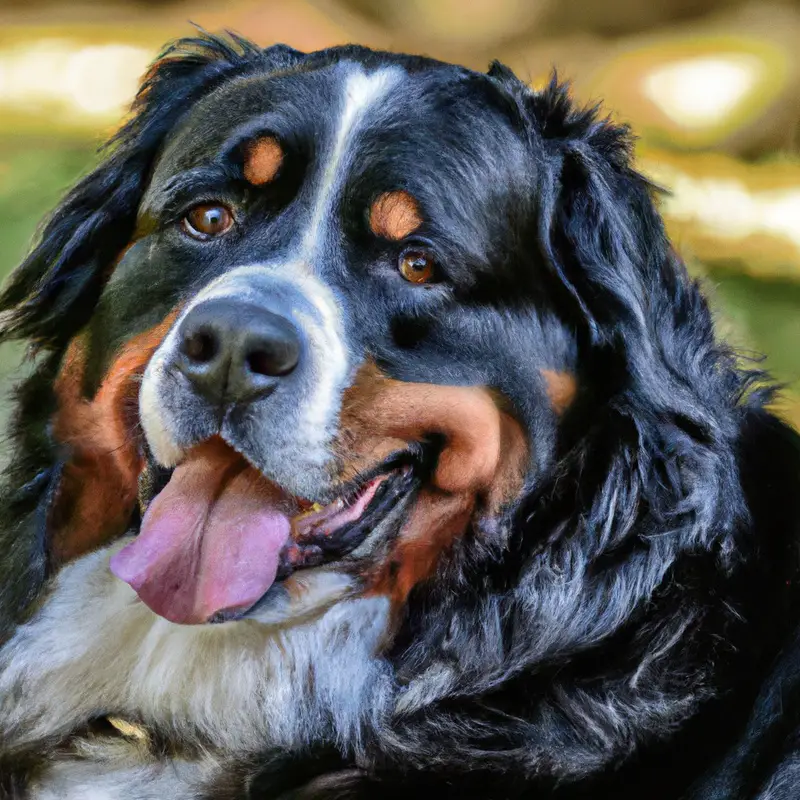
Recommended training methods
When it comes to training Bernese Mountain Dogs, there are a few recommended methods that can help you achieve success.
Here are some key training methods to keep in mind:
- Positive reinforcement: Rewarding your Bernese Mountain Dog with treats, praise, and toys when they exhibit desired behaviors can be highly effective in their training.
- Consistency: Establishing consistent routines and rules will help your dog understand what is expected of them. Avoid sending mixed signals or changing training methods frequently.
- Socialization: Expose your Bernese Mountain Dog to different environments, people, and animals from a young age. This will help them become well-adjusted and friendly members of the community.
- Patience and persistence: Remember that training takes time and effort. Be patient with your dog and remain consistent in your training efforts.
By incorporating positive reinforcement, being consistent, promoting socialization, and embracing patience, you can effectively train your Bernese Mountain Dog and set them up for a happy and well-behaved life.
Exercise and activity needs
Daily exercise requirements
Daily exercise is essential for Bernese Mountain Dogs to maintain their physical and mental well-being.
They are an active breed that enjoys exploring and being outdoors.
Aim for at least 30-60 minutes of exercise every day, which can include walking, jogging, or playing fetch.
Engaging in interactive activities like obedience training or agility can also provide mental stimulation.
Keep in mind that they are sensitive to heat, so exercise during cooler parts of the day and provide plenty of water.
Suitable activities for Bernese Mountain Dogs
Bernese Mountain Dogs are known for their strength and endurance, so they enjoy activities that allow them to use their large, muscular bodies.
Here are some suitable activities for these breeds:
- Long walks or hikes: Bernese Mountain Dogs love to explore and be outdoors, so taking them on long walks or hikes in nature is a great way to keep them active and mentally stimulated.
- Fetch: These breeds have a natural instinct to retrieve, so playing a game of fetch with them can be a fun and engaging activity.
- Swimming: Many Bernese Mountain Dogs enjoy swimming, which is a low-impact exercise that helps keep their joints healthy.
- Carting or pulling: These dogs have a history of pulling carts, so engaging them in this activity can be a great way to exercise and bond with them.
- Agility training: Bernese Mountain Dogs are intelligent and enjoy learning new skills. Participating in agility training can provide mental stimulation and physical exercise.
Remember, each dog is unique, so it’s important to tailor activities to your dog’s energy level, age, and health.
Always consult with your veterinarian before starting any new exercise routine.
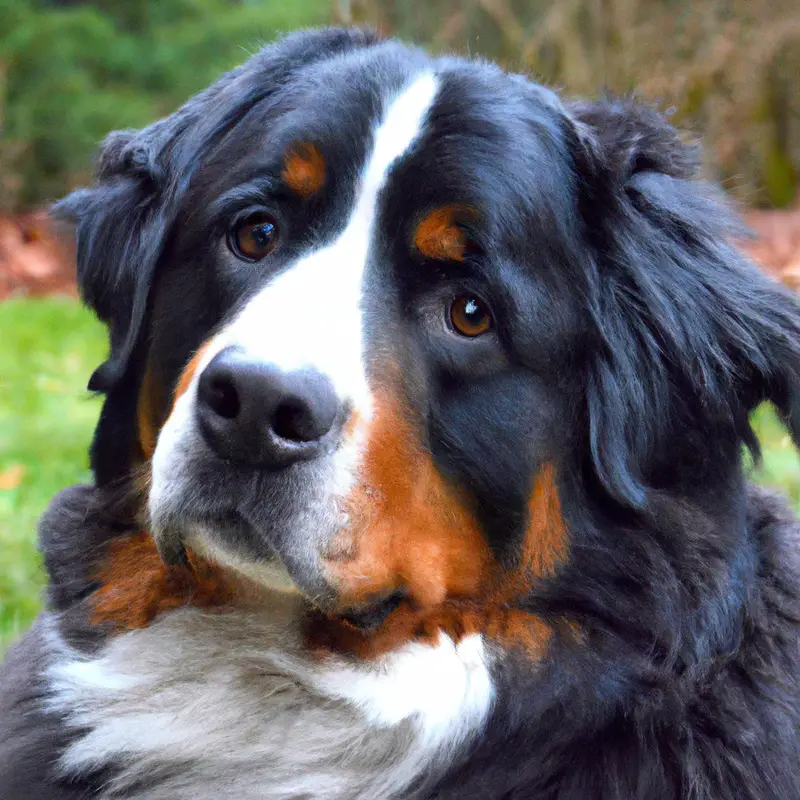
Health issues
Common health concerns
Common health concerns for Bernese Mountain Dogs include hip and elbow dysplasia, which can cause pain and mobility issues. They are also prone to developing certain cancers, such as mast cell tumors and lymphoma.
Additionally, this breed may be susceptible to bloat, a condition where the stomach twists and can be life-threatening.
Regular veterinary check-ups, a balanced diet, exercise, and breed-specific health screenings can help identify and manage these issues. Providing a safe and comfortable environment can also contribute to their overall well-being.
Health screening and preventive measures
Health screening and preventive measures are essential for maintaining the well-being of Bernese Mountain Dogs. Regular veterinary check-ups are crucial to identify any potential health issues early on.
Additionally, it is important to follow recommended vaccination schedules to protect your dog from common diseases.
Regular exercise and a balanced diet are also key in keeping your Bernese Mountain Dog in good health. Lastly, practicing good dental hygiene, such as regular teeth brushing, can help prevent dental problems.
Grooming
Brushing and coat maintenance
Brushing and coat maintenance for Bernese Mountain Dogs is an essential part of their care.
Their long, thick fur requires regular brushing to prevent matting and to keep it looking its best.
It’s recommended to brush them at least once or twice a week to remove loose hair and dirt.
Using a slicker brush or a comb can help get rid of any tangles or knots.
Additionally, regular grooming sessions can help identify any skin issues or parasites early on.
It’s important to be gentle and patient while brushing to ensure it’s a positive experience for your dog.
Bathing and grooming routine
Bathing and grooming routines are essential for keeping your Bernese Mountain Dog healthy and looking their best.
Here’s what you should know:
- Bathing: Aim to bathe your Bernese Mountain Dog every 1-2 months or as needed. Use a dog-specific shampoo and warm water. Be sure to rinse thoroughly and dry them completely to prevent skin issues.
- Brushing: Regular brushing is crucial to maintain their beautiful coat. Use a slicker brush or comb to remove tangles and prevent matting. Focus on common problem areas like the ears, tail, and underbelly.
- Nail trimming: Trim your dog’s nails every 2-4 weeks, depending on their growth rate. Use a dog nail clipper or grinder to avoid causing pain or injury. If you’re unsure, consult a professional groomer or veterinarian.
- Ear care: Check your Bernese Mountain Dog’s ears regularly for signs of infection or dirt buildup. Clean them gently using a dog-approved ear cleaning solution and cotton balls or pads.
- Teeth brushing: Dental hygiene is important for your dog’s overall health. Brush their teeth regularly with a dog toothbrush and toothpaste to prevent gum disease and bad breath.
Remember to approach grooming sessions with patience and positive reinforcement.
Making it a positive experience will help your Bernese Mountain Dog feel more comfortable and cooperative.
Living with a Bernese Mountain Dog
Suitable living conditions
Bernese Mountain Dogs thrive in homes with ample space for exercise and play.
They are happiest in environments that offer a large fenced yard for them to roam and explore.
These dogs are not well-suited for apartment living as they require plenty of physical activity to keep them stimulated and prevent boredom.
It is important to note that Bernese Mountain Dogs are sensitive to temperature extremes, so they should have access to a cool and ventilated area during hot weather and a warm and sheltered space during cold weather.
Socialization and interaction needs
Socialization and interaction are important for Bernese Mountain Dogs. They are friendly and social animals that thrive on companionship and being part of the family.
It is key to expose them to different people, animals, and environments from a young age to help them develop good social skills.
Regular playdates, walks, and outings are great opportunities for interaction and stimulation. Investing time in their socialization will help them become well-rounded and happy companions.
Frequently Asked Questions (FAQs)
Are Bernese Mountain Dogs good with children?
Bernese Mountain Dogs are known for being great with children.
Their gentle and friendly nature makes them excellent family pets.
These dogs are patient, loving, and protective, making them ideal companions for kids.
Bernese Mountain Dogs are highly tolerant and can handle the energetic and sometimes rough play of children.
They are also very loyal and make great watchdogs, ensuring the safety of your little ones.
With proper socialization and training, Bernese Mountain Dogs form strong bonds with children and become an integral part of the family.
How often should I groom my Bernese Mountain Dog?
Grooming your Bernese Mountain Dog is essential to keep their beautiful coat healthy and tangle-free. Aim to brush their coat at least two to three times a week to remove loose hair and prevent matting.
During shedding seasons, increase the frequency to daily brushing.
Regularly check their ears, trim their nails, and maintain dental hygiene. Bathing should be done as needed, typically every 6-8 weeks, using a dog-specific shampoo.
Don’t forget to give them lots of love and treats during the grooming process!
What is the lifespan of a Bernese Mountain Dog?
The average lifespan of a Bernese Mountain Dog is typically around 7 to 10 years. However, some Bernese Mountain Dogs may live longer with proper care and a healthy lifestyle.
Regular veterinary check-ups, a balanced diet, exercise, and maintaining a safe environment are essential for ensuring the longevity and well-being of your Bernese Mountain Dog.
Remember to provide them with love and attention throughout their life to make it a fulfilling and happy one.
Final Verdict
Bernese Mountain Dogs possess a unique blend of characteristics that make them exceptional companions. Their size and weight, coupled with their striking coat and colors, make them a visually stunning breed.
Their gentle and friendly nature, along with their loyalty and protective instincts, make them ideal family pets.
Their intelligence and willingness to learn make training a rewarding experience, and their exercise needs can be met through daily activities. While they may be prone to certain health issues, proactive screening and preventive measures can help ensure their overall well-being.
Grooming is a crucial aspect of caring for a Bernese Mountain Dog, and providing suitable living conditions and ample socialization are key to their happiness.
Overall, Bernese Mountain Dogs are versatile and loving animals that bring joy and companionship to any home.

